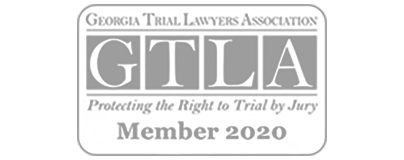Home | Glossary of Personal Injury Terms | Loss of Consortium
Loss of Consortium
Experiencing a personal injury can dramatically alter the lives of both the injured party and their loved ones. When a spouse suffers injury due to another’s negligence or malicious actions, it is essential to understand the available legal recourse, including the option to file a loss of consortium claim.
What Is Loss of Consortium?
Loss of consortium refers to the deprivation of the benefits of a family relationship due to an injury inflicted on one spouse. This loss can encompass a range of emotional and physical aspects, such as companionship, affection, and the ability to engage in shared activities. For instance, if a spouse is hurt in an accident, the other spouse may find themselves grappling with the absence of their partner’s presence and support.
In states like Georgia, the law recognizes the rights of a spouse to seek compensation for these intangible losses. Such claims can arise from various incidents, including accidents caused by careless driving, workplace negligence, or other forms of misconduct that lead to significant injuries.
Proving a Loss of Consortium Claim
To establish a successful loss of consortium claim, certain criteria must be met:
- Negligence or Wrongdoing. The claimant must demonstrate that the defendant’s actions were negligent or intentionally harmful, leading to the injury of the spouse.
- Impact on the Relationship. Evidence must show that the injury has caused a significant detriment to the marital relationship.
In Georgia, the burden of proof lies with the claimant, who must substantiate the claims with relevant documentation, potentially including medical records and testimony from witnesses who can attest to the relationship’s changes.
Damages in Loss of Consortium Claims
Loss of consortium claims typically involve various forms of damages that can be sought by individuals who have suffered the loss of companionship or support due to an injury inflicted on a loved one. These damages may encompass both economic and non-economic aspects, reflecting the profound impact that such losses can have on relationships.
Economic Damages
This category includes tangible financial losses, such as medical expenses incurred for treating the injured party and any additional costs associated with care or support services needed as a result of the injury.
Non-Economic Damages
These damages address the intangible aspects of loss, including emotional distress, loss of affection, companionship, and overall quality of life disruptions experienced due to the injury sustained by a spouse or partner.
Punitive Damages
In certain cases, punitive damages may be awarded if the defendant’s actions were particularly egregious or negligent. These serve not only to compensate the injured party but also to deter similar conduct in the future.
Overall, understanding these categories helps clarify what individuals may pursue in legal claims related to loss of consortium.
When determining compensation for loss of consortium, courts will evaluate several factors, including:
- The severity and permanence of the injured spouse’s condition.
- The length of the marriage before the incident.
- The extent to which the injury has disrupted the couple’s relationship.
It is essential to note that loss of consortium damages are typically awarded in addition to any compensation the injured spouse receives for medical expenses, lost wages, and other related costs.
Who Can File for Loss of Consortium?
Spouses in Georgia who have been directly affected by an injury can file for loss of consortium. Other relatives, such as parents or siblings, generally do not have standing to pursue such claims.
Examples of Loss of Consortium
The impact of an injury on a marriage can manifest in various ways. Here are some examples that may qualify for a loss of consortium claim:
- Loss of Shared Activities. If an injury prevents a partner from participating in hobbies, sports, or travel that were once enjoyed together.
- Domestic Responsibilities. Injuries that hinder a spouse’s ability to fulfill household duties, such as cooking or childcare.
- Emotional Distress. Psychological issues stemming from the injury, like depression or anxiety, that disrupt communication and intimacy.
- Separation Due to Hospitalization. Prolonged hospital stays that lead to emotional and relational distance.
- Financial Strain. The inability of the injured spouse to contribute to the family financially due to their condition.
Each claim will be unique, influenced by the specific circumstances surrounding the injury and the relationship dynamics.
Important Considerations for Filing a Loss of Consortium Claim
Before pursuing a loss of consortium claim, consider the following:
- Emotional Challenges. The process may require sharing private aspects of the marital relationship, which can be emotionally taxing.
- Defensive Strategies. The defendant may question the stability of your marriage, leading to invasive inquiries about your relationship.
- Time Commitment. Gathering evidence and preparing for legal proceedings can be time-consuming.
- Uncertain Outcomes. There is no guarantee of success, and awarded damages may fall short of expectations.
- Social Implications. Legal actions could strain personal relationships, particularly if the defendant is a family member or close friend.
Given these complexities, it’s vital to weigh the potential benefits against the emotional and social costs involved in filing a claim.

GEORGIA PERSONAL INJURY LAWYER NEAR ME
Assistance for Your Loss of Consortium Claim
Consulting with a knowledgeable personal injury lawyer can provide clarity on loss of consortium claims and help navigate the legal process. Many attorneys in Georgia offer initial consultations at no charge and work on a contingency fee basis, meaning you only pay if you win your case.
Are you facing the challenges of a spouse’s injury and wish to explore your options for a loss of consortium claim? Consider consulting with a legal expert who can help you secure the compensation you deserve.
GET A FREE CASE REVIEW
PRACTICE AREAS
Frequently Asked Questions?
Do I need a personal injury attorney?
The Jewkes Firm is well-versed in effectively challenging major insurance companies on your behalf to secure the highest settlement permissible by law. Our primary objective is to ensure your optimal recovery. It is only after this point that we assess the worth of your case.
What is the deadline for filing an injury case in Georgia?
The timeframe for filing an injury case, also known as the statute of limitations, can vary significantly. As per OCGA §9-3-33, you are granted a two-year period from the date of your injuries or the passing of a family member to initiate your personal injury claim.
What is the cost to hire a personal injury attorney?
There is no upfront cost associated with hiring a personal injury lawyer. Our fees are based on a percentage of your settlement, meaning you only pay if we successfully recover compensation. Our top priority is ensuring your well-being and helping you return to your normal life.
What damages can you recover from a personal injury?
A personal injury lawyer aims to establish negligence and seek restitution for the harm caused by the liable party. Additionally, you may be entitled to compensation for funeral costs, medical expenses, and income lost if you are a family member of someone who died as a result of an injury.
Free Case Evaluation











